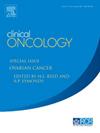临床质量登记对肺癌质量测量的影响:维多利亚肺癌登记的回顾性观察研究
IF 3
3区 医学
Q2 ONCOLOGY
引用次数: 0
摘要
AimClinical质量登记处(CQRs)通过收集、分析和向利益相关者机构报告基准临床质量绩效结果来监测医疗保健质量,目的是缩小研究证据与实践之间的差距。目前对CQR功能对肺癌临床预后的影响知之甚少。材料和方法我们研究了连续的新诊断肺癌患者的25项临床质量指标(cqi)的实现情况,以评估纵向无根据的临床差异、质量指标的实现情况及其对生存率的影响。这项研究是2016年至2021年间澳大利亚维多利亚州肺癌登记处的一项观察性队列研究。结果:我们对12121例连续患者进行了研究,观察到在研究开始时,从非常低(2.1%)到高(90%)的所有指标的机构指标达到程度的护理存在很大差异。随着时间的推移,指标的实现增加(n = 6个指标),保持稳定(n = 17),减少(n = 2)。达到CQI与大多数指标的死亡风险显著降低相关(n = 15;死亡率降低10%-67%),与3个指标相关的死亡风险增加(死亡率增加32%-48%)。对指标的总体水平评估揭示了多个可修改的驱动因素,这些驱动因素可能有针对性地提高指标的实现。非小细胞肺癌(NSCLC)生存分析发现,II期和IV期NSCLC在covid前和I期总体上有明显改善。结论临床质量登记是医疗质量改善周期中学习卫生系统的定义和参与的潜在变革工具。本研究确定了医院肺癌CQI水平的显著差异和利益相关方之间的无根据差异。关注此变化的涉众提供了特定于上下文的机会来识别局部改进机会。这些过程度量影响结果度量,包括生存,并能够评估服务创新和迭代质量改进的证据-实践差距。本文章由计算机程序翻译,如有差异,请以英文原文为准。
Impacts of a Clinical Quality Registry on Lung Cancer Quality Measures: A Retrospective Observational Study of the Victorian Lung Cancer Registry
Aim
Clinical quality registries (CQRs) monitor the quality of healthcare by collecting, analysing and reporting benchmarked clinical quality performance outcomes to stakeholder institutions, with the objective of closing the research evidence-practice gap. Little is known of the effects of CQR function on clinical outcomes in lung cancer.
Materials and methods
We studied the attainment of 25 clinical quality indicators (CQIs), in consecutive, newly diagnosed lung cancer patients to assess longitudinal unwarranted clinical variation, quality indicator attainment and consequent survival impacts. This study was an observational cohort study of the Victorian Lung Cancer Registry in Victoria, Australia, between 2016 and 2021.
Results
We studied 12,121 consecutive patients, observing substantial variation in care in institutional indicator attainment for all indicators ranging from very low (2.1%) to high (90%) at study outset. Indicator attainment over time increased (n = 6 indicators), remained stable (n = 17), and decreased (n = 2). The attainment of CQI was associated with a significant reduction in mortality hazard for the majority of indicators (n = 15; HR reduced 10%–67%), and an increase in mortality hazard associated with 3 indicators (HR increased 32%–48%). Population level evaluation of indicators revealed multiple modifiable drivers that may be targeted to enhance indicator attainment. Non-small cell lung cancer (NSCLC) survival analysis identified significant improvement evident for stage II and IV NSCLC in the pre-COVID era and stage I overall.
Conclusion
Clinical quality registries are potentially transformative tools for the definition and engagement of learning health systems in the healthcare quality improvement cycle. This study identified significant variation in hospital lung cancer CQI attainment and unwarranted variation between stakeholder sites. Stakeholder focus on this variation provides context-specific opportunity to identify local improvement opportunities. These process measures impact outcome measures, including survival, and enable the evaluation of the evidence-practice gap for service innovation and iterative quality improvement.
求助全文
通过发布文献求助,成功后即可免费获取论文全文。
去求助
来源期刊

Clinical oncology
医学-肿瘤学
CiteScore
5.20
自引率
8.80%
发文量
332
审稿时长
40 days
期刊介绍:
Clinical Oncology is an International cancer journal covering all aspects of the clinical management of cancer patients, reflecting a multidisciplinary approach to therapy. Papers, editorials and reviews are published on all types of malignant disease embracing, pathology, diagnosis and treatment, including radiotherapy, chemotherapy, surgery, combined modality treatment and palliative care. Research and review papers covering epidemiology, radiobiology, radiation physics, tumour biology, and immunology are also published, together with letters to the editor, case reports and book reviews.
 求助内容:
求助内容: 应助结果提醒方式:
应助结果提醒方式:


